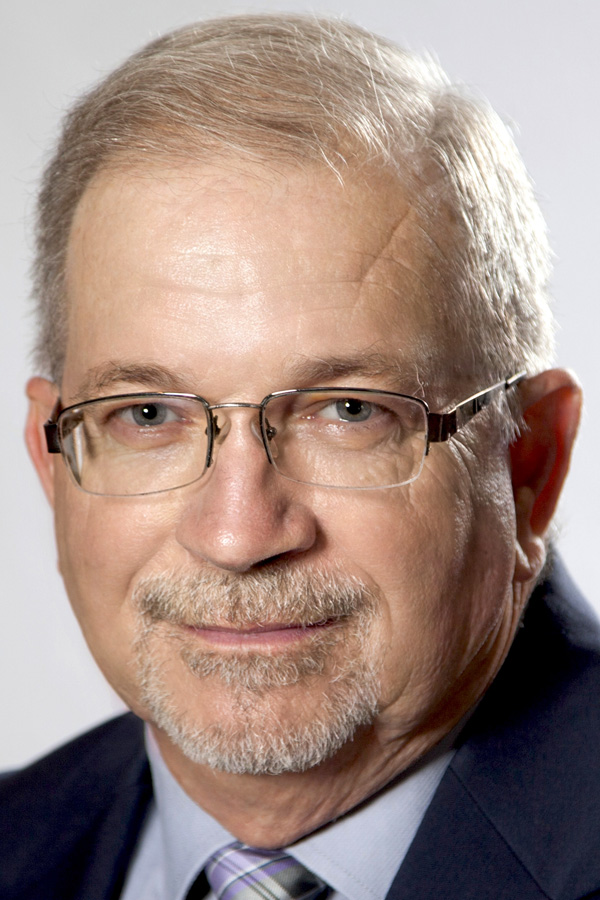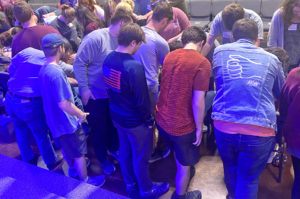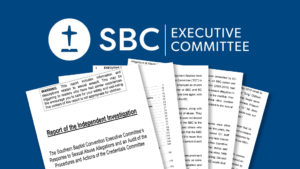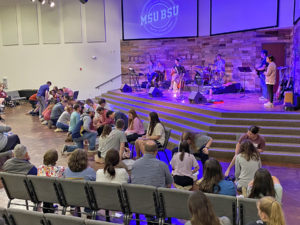By Kenny Digby, Executive Director-Treasurer
Miss. Baptist Christian Action Commission

A basic doctrine of our faith is the Priesthood of the Believer. When a person gets saved, the Holy Spirit fills that person’s soul and he/she has direct access to God the Father through Jesus Christ.
Through the illumination of the Word of God by God the Spirit, that believer can know the prescribed will of the Father. This is a primary consideration I prefer congregational church government (polity), over episcopal (top down) or presbyterian (elder rule) church polity. I am not referring here to different denominations, but to different types of church government.
The word for “church” in the New Testament is “ecclesia.” A word study in hermeneutics is not a definition, but rather an understanding of the secular usage of that word before it became a church word. “Redeem” was to buy a slave and set him free. The Jews were not justified in a courtroom of Egypt; this slave nation was redeemed out of Egypt.
“Ecclesia” was used in New Testament times to refer to the town hall meeting of a Greek city-state, held in an amphitheater. Here the assembled citizens determined policy through pure democracy: one person-one vote. Congregational church polity is very similar.
For a church business meeting, I prefer pure democracy. Committees and teams are helpful, but in a pure democracy the convening authority is a simple majority of those voting.
This may come as a surprise to some civic students: Our American forefathers did not prefer a government of pure democracy. In their wisdom, they established a constitutional republic. Webster defines “republic” as “a government in which supreme power resides in a body of citizens entitled to vote and is exercised by elected officers and representatives responsible to them and governing according to law.”
This type of civic government is very similar to presbyterian or elder-rule church government in determining policy. This is not one person-one vote.
In our U.S. Congress, the House of Representatives is basically proportional according to population. Larger states with more voters get more representation and smaller states get less, but all states regardless of size get at least one representative.
The largest small state gets one and the smallest small state gets one, not 3/4 or 1/2. In the U.S. Senate, however, all states get two senators regardless of state size. Is that fair? This is representative democracy, a republic, which our forefathers preferred.
The Electoral College, which elects the U.S. president, is not pure democracy. Because of the makeup of our Congress, even the smallest state gets three full votes in the Electoral College (one for each senator and representative). A state that is twice as big, or bigger, only gets four. That is a 33% increase in votes for a 100% increase in population.
The same defective logic that does away with the Electoral College would do away with the Senate, but we are a republic and not a pure democracy.
Until April 8, 1913, the Mississippi Legislature elected our two U.S. senators. The 17th Amendment to the U.S. Constitution established the direct election of United States senators by popular vote. Again, our forefathers wanted a republic — not a town hall meeting.
For example, my grandson Andy Austin is a citizen of the United States. Because he is only 16 months old, he did not vote in the most recent presidential election. I would not want him to have the right to vote as a one-year-old, but I likewise don’t think my dead uncle over in Georgia should have voted in that same election.
I do not believe in one person-one vote. Only qualified, registered, legally-identifiable citizens of the United States should vote. Our U.S. Constitution gives control of federal elections to the state legislatures. House Resolution 1, legislation supported by the present liberal Congress, would change this for the worse.
The sanctity of elections is critical in both church and civic governments. We need to remain a constitutional republic. Mob rule is not the answer to any injustice. Anarchy hurts everyone.
We must follow the rule of law, and to do that there must be law and order. God bless our military, our law enforcement officers, our first responders. God bless the U.S.A. — a constitutional republic.
Digby may be contacted at kdigby@christianaction.com.








